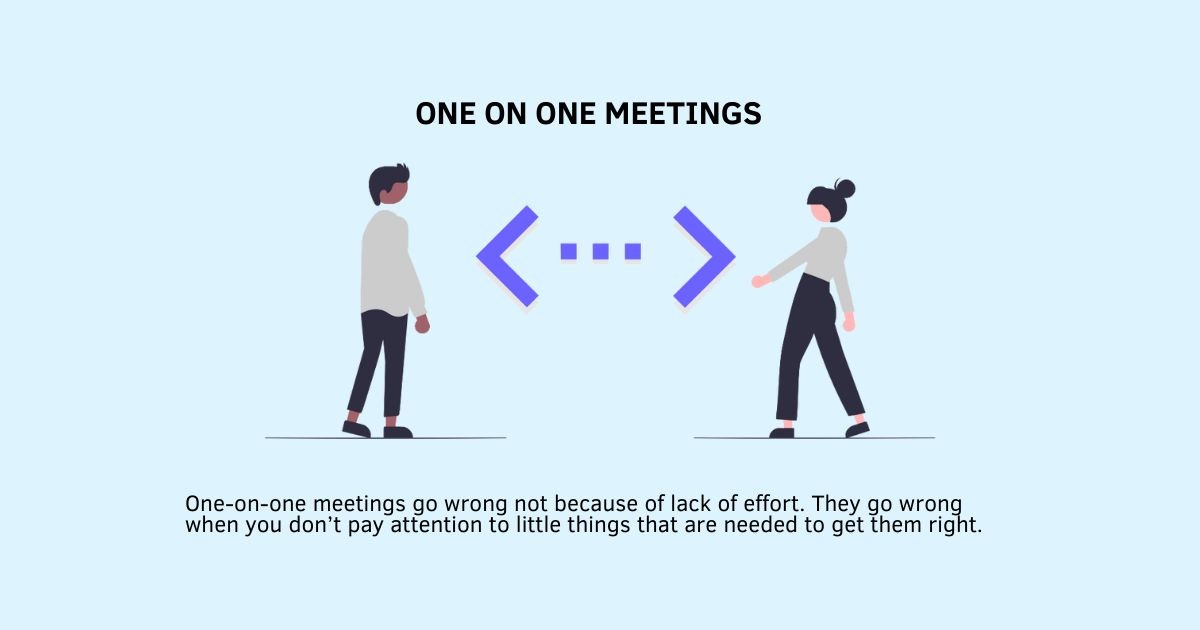441 reads
These Errors in One-on-One Meetings are Hurting Your Team

Too Long; Didn't Read
One-on-one meetings may not go wrong because of a lack of effort. They become unproductive when you don’t pay attention to the little mistakes that must be avoided to get them right. The beginning of a meeting is as important as its end. Show respect by starting the meeting on time and shifting your frame of mind to open the dialogue with useful information or by asking a powerful question. Shut up and embrace silence. You can’t keep speaking and expect them to share useful information. Guide them and coach them into thinking for themselves. Don’t do their thinking for them. Your meeting should have an agenda, but that shouldn’t make you inflexible to adjust and adapt. Watch out for cues and pay attention. Zoom in and zoom out as needed. Be present and pay attention instead of being distracted by your thoughts or the things in your environment. You can’t be distracted and have a productive conversation simultaneously. Instead of making an assumption about how you’re doing, ask for feedback. Seeking feedback and incorporating it in your one-on-one meetings will build trust and make them look forward to these discussions.Author Upgrade Your Mindset, Rethink Imposter Syndrome. Scaling products → Scaling thinking. Former AVP Engg @Swiggy
Learn More
LEARN MORE ABOUT @VINITABANSAL'S
EXPERTISE AND PLACE ON THE INTERNET.
EXPERTISE AND PLACE ON THE INTERNET.
TOPICS
THIS ARTICLE WAS FEATURED IN...
L O A D I N G
. . . comments & more!
. . . comments & more!



Share Your Thoughts